Bid Confidently, Win Consistently – Zip Code Estimates Made Easy!
- Accurancy
- Efficiency
- Transparency
- Customization
- Time Saving
- Professionalism
- Cost Control
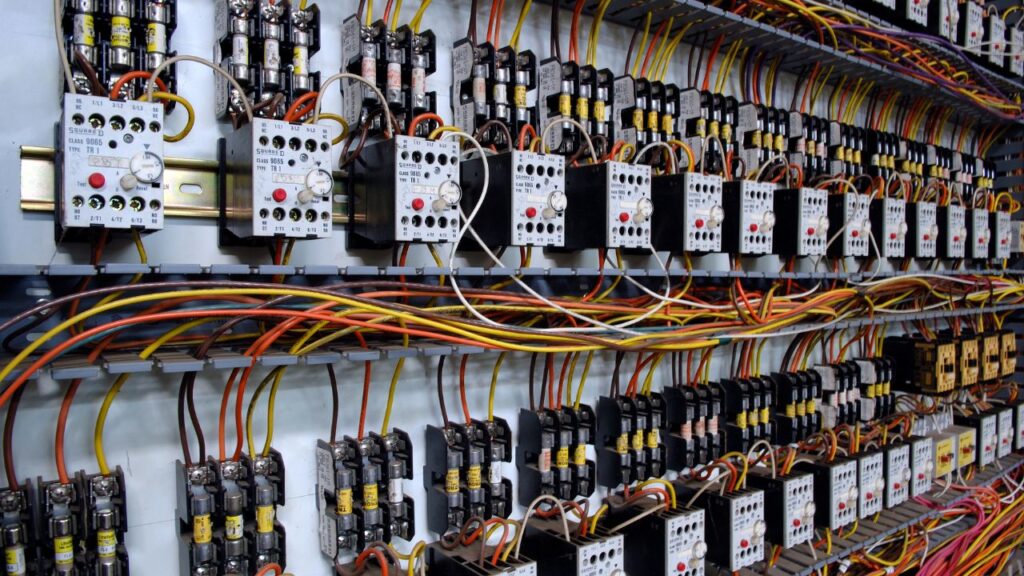
Are you contemplating rewiring your 2,600 sq ft residence? The cost typically ranges from $10 to $25 per sq ft, totaling $26,000 to $65,000 or more. Several factors affect the final expense, including the complexity of the job, materials used, and the home’s location. You have various options, from basic updates to a complete rewiring overhaul, depending on your needs and budget. The timeline for completion varies based on the size and complexity of the project. It’s crucial to enlist the services of a licensed and experienced electrician to ensure the work is done safely and efficiently.
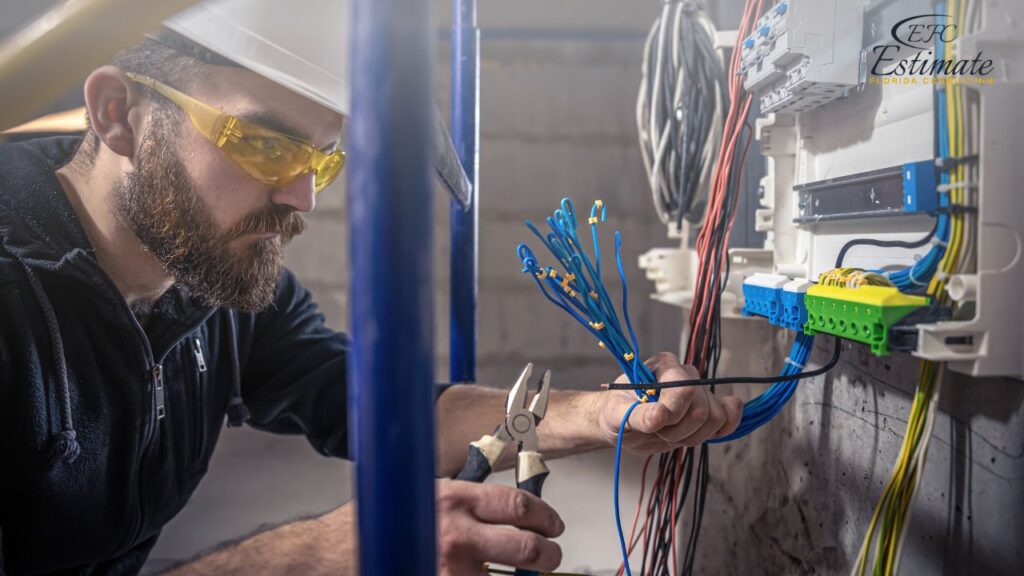
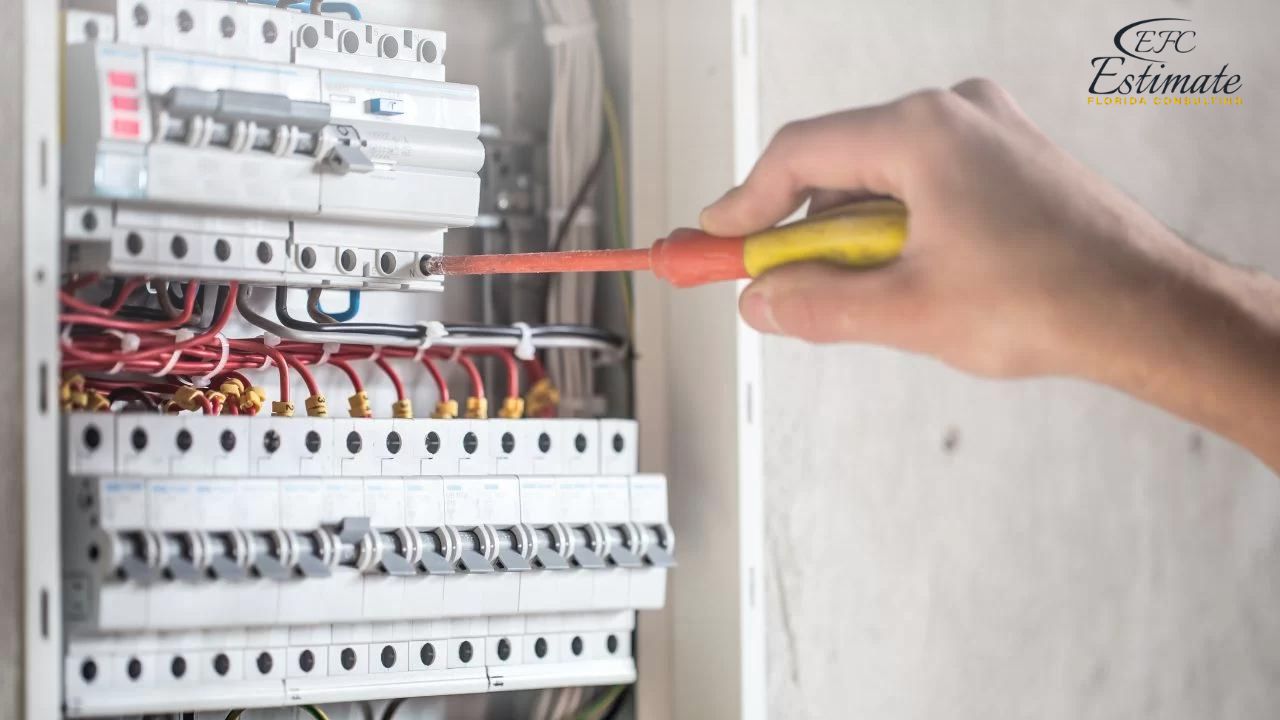
Hire a Fully Insured Licensed Contractor For Electrical
Hire Contractor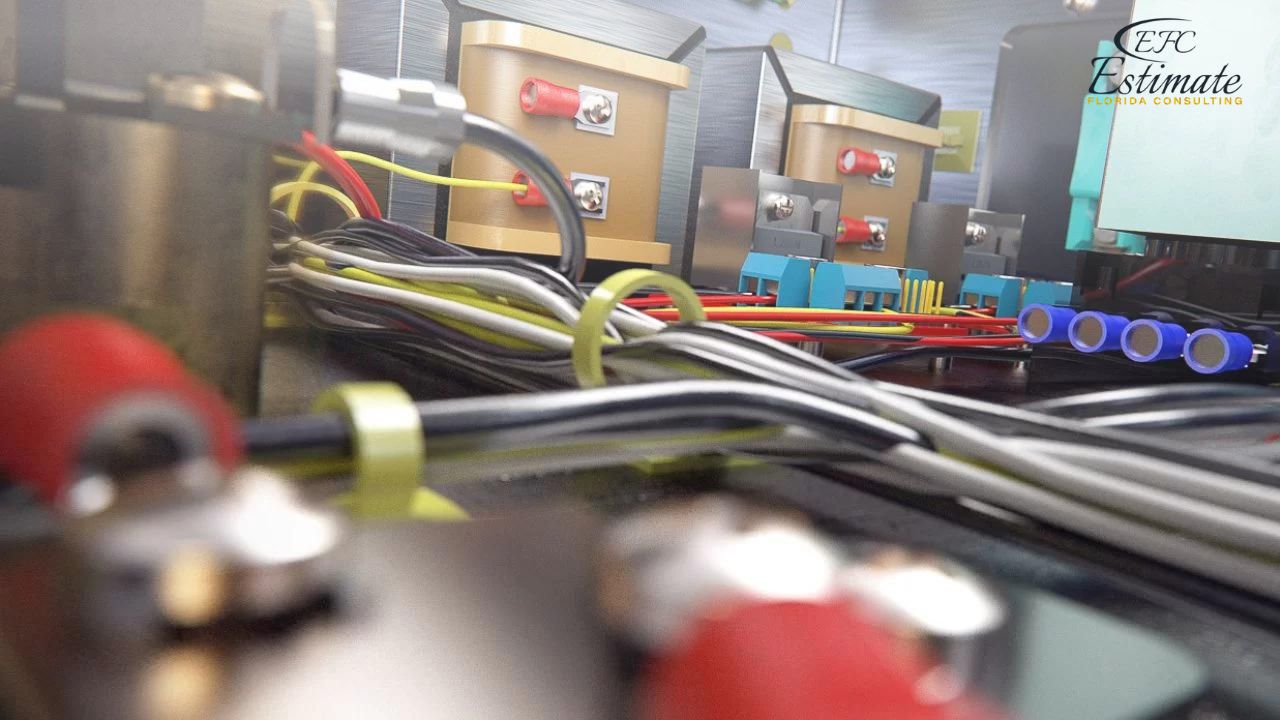
Make Informed Design Decisions Showcase Your Design Ideas
Get RenderingRewiring refers to the process of replacing or updating the electrical wiring in a building or structure to ensure safety and functionality.
Ensuring that the electrical system is up to date is crucial for preventing potential hazards such as electrical fires or malfunctions. By keeping the wiring in proper working order, the risk of electrical shocks or short circuits can be greatly reduced. Updating wiring to meet current electrical codes and standards not only enhances safety but also ensures compliance with regulations. This process improves the overall efficiency of the electrical system, leading to reliable power distribution throughout the building. Properly rewiring a structure can also increase its property value and provide peace of mind for occupants.
Rewiring is necessary to maintain the safety and functionality of the electrical system in a building, ensuring proper electrical flow and reducing the risk of hazards such as electrical fires.
Deteriorating wiring can pose significant risks, including electrical shocks, short circuits, and even potential electrocution. Outdated wiring systems are more susceptible to overloading, overheating, and sparking, leading to dangerous situations. By conducting regular inspections and promptly upgrading the wiring where needed, potential hazards can be mitigated, and the overall electrical safety of a property can be enhanced. It is crucial to stay proactive in maintaining the electrical infrastructure to ensure the well-being of occupants and safeguard against costly damages from electrical incidents.
Several factors influence the cost of rewiring, including the size of the residence, the type of wiring required, labor costs, materials used, and any necessary permits for electrical work.
The size of the residence plays a critical role in determining the cost of rewiring. Larger homes typically require more wiring, which increases both material and labor expenses. For example, a spacious multi-story house will need more wiring than a small apartment, leading to higher overall costs.
The type of wiring needed can significantly impact pricing estimates. High-quality materials such as copper wiring will be more expensive than aluminum alternatives. Obtaining permits for electrical work is essential and can add to the total rewiring cost.
The accessibility of existing wiring, electrical panels, and circuit breakers can influence the cost of rewiring projects, as difficult-to-reach areas may require more labor and time for upgrades.
When wiring components are tucked away behind walls or in confined spaces, electricians face challenges in maneuvering and working efficiently. For instance, older homes often have wiring systems hidden within walls that can be challenging to access without causing damage.
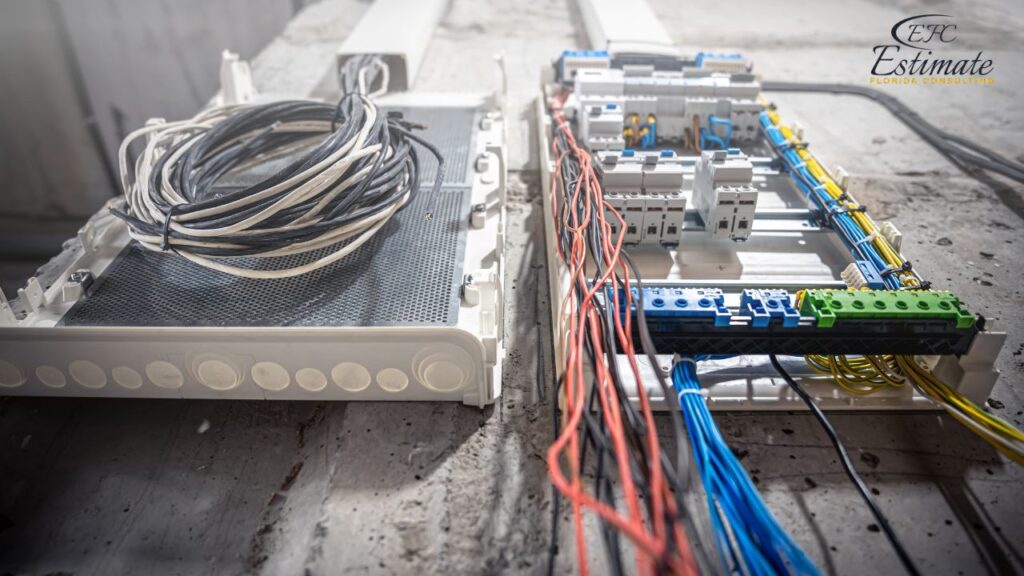
Complex circuit setups with multiple interconnected panels also add to the complexity of the rewiring task, requiring meticulous planning and execution to ensure safety and functionality. In such scenarios, the expertise of a skilled electrician becomes crucial to navigate the intricacies of the electrical system and complete the rewiring project effectively.
The size of the residence, typically measured in square footage, directly influences the complexity and cost of rewiring due to the extent of electrical work required to cover the entire area.
The larger the square footage of a home, the more circuits, outlets, and switches will need to be installed or replaced during a rewiring project. For example, in a smaller residential property under 1,000 square feet, the cost of rewiring could range from $6,000 to $20,000. For a larger home exceeding 2,500 square feet, the cost could escalate to $18,000 to $48,000 or more depending on the intricacy of the electrical system. Factors such as the age of the property, accessibility of wiring, and the type of materials used also play a significant role in determining the final cost.

The age of the residence plays a significant role in rewiring costs, as older buildings may require more extensive renovation to update the electrical system to modern standards.
Older homes, especially those built before the 1960s, often face common electrical issues such as outdated knob and tube wiring, overloaded circuits, and insufficient grounding. These issues can pose serious safety hazards and limit the home’s ability to handle the power demands of modern appliances and technology. Rewiring an older home not only enhances safety but also improves energy efficiency and increases the overall value of the property. Historical building updates that consider electrical system upgrades are essential for ensuring the longevity and functionality of these charming homes.
The type of wiring needed for a rewiring project, such as upgrades or replacements, can impact the overall cost, with specialized wiring requirements or inspection needs contributing to pricing variations.
When considering rewiring, homeowners can opt for different wiring options based on their specific needs and budget constraints. Upgrading to modern wiring standards like copper or aluminum can offer improved safety and efficiency.
Conducting a thorough inspection before starting the rewiring process can help identify any underlying issues, ensuring that the upgrades are done correctly and prevent potential hazards. Understanding the various wiring options available and the importance of inspections can help homeowners make informed decisions when planning electrical upgrades.
Labor costs, including hiring subcontractors or electrical contractors, form a significant portion of the total rewiring expenses, influenced by the complexity of the project and the expertise required for the job.
The allocation of these labor expenses in rewiring projects is crucial as it directly impacts the overall budget and timeline. Subcontractors play a key role in such electrical undertakings, bringing specialized skills and experience to the table. Their involvement can streamline the process and ensure high-quality workmanship. By engaging subcontractor services, project managers can efficiently manage labor costs and optimize resource utilization. Contractors oversee the coordination between various subcontractors, facilitating smooth operations and timely completion of the rewiring project.
Permits and inspections mandated by electrical codes are essential components of rewiring projects, ensuring compliance with safety standards and regulations, although they can contribute to the overall cost.
These measures play a crucial role in safeguarding the well-being of both occupants and buildings. For instance, obtaining a permit confirms that the work will be carried out by a licensed professional, guaranteeing expertise in adherence to the National Electric Code (NEC). In addition to code compliance, inspections provide a comprehensive evaluation of the electrical system, identifying any potential hazards and ensuring that the installation meets the necessary safety requirements. By following the permit processes and undergoing inspections, homeowners can have peace of mind knowing that their electrical work is up to standard and safe for daily use.
Rewiring a 2,600-square-foot home is a significant project that can vary in cost depending on several factors. The average cost typically ranges from $10 to $25 per square foot, which means for a 2,600 sq ft residence, you could be looking at a total expense ranging from $26,000 to $65,000. This estimation encompasses labor costs, material expenses, and additional service charges.
Basic rewiring typically incurs lower costs since it involves minimal changes to the existing electrical setup. The average cost for basic rewiring can range from the lower end of the $8 to $21 per sq ft spectrum. For a 2,600 sq ft home, this could translate to approximately
$14,500 to $45,000 or more, depending on the specific tasks involved. These tasks often include replacing outdated wiring, upgrading electrical panels, installing new outlets, and ensuring compliance with current safety codes. These projects are best suited for homes that require only minor electrical updates.
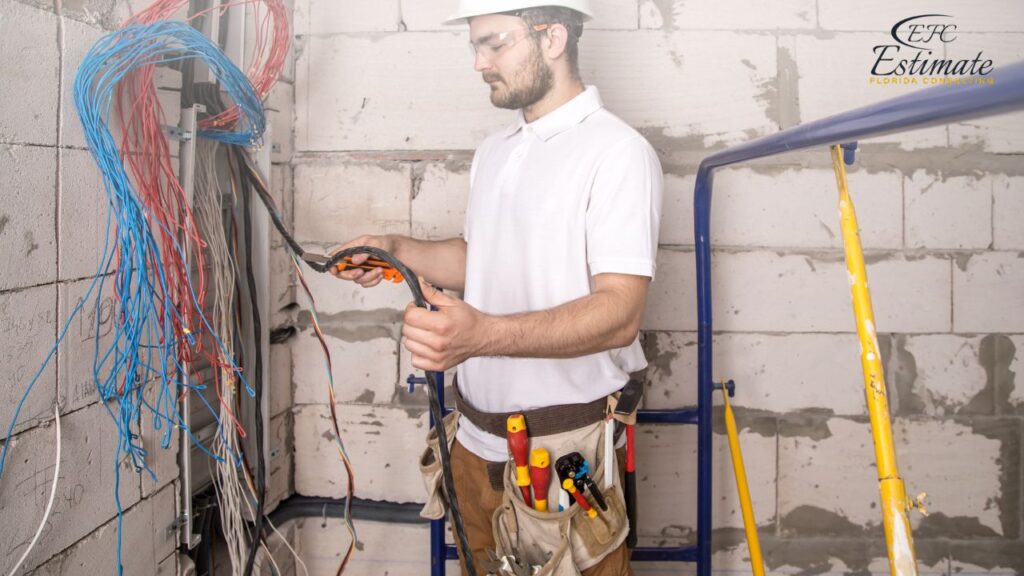
The cost of partial rewiring can vary significantly based on the extent of the replacement needed. In this scenario, the cost per square foot may still fall within the $9 to $24 sq.ft range, but the total cost will be lower than a full rewiring project due to the limited scope of work. For a partial rewiring of a 2,600 sq ft residence, the cost might range from $18,000 to $50,500 or more, focusing on specific areas that need repair or upgrades. This approach is cost-effective for addressing issues in certain parts of the house without overhauling the entire electrical system.
Full rewiring is the most comprehensive and expensive option, often necessary for older homes or those with significantly outdated electrical systems. The costs for complete rewiring are at the higher end of the spectrum, typically averaging between $20 to $25+ per square foot. For a 2,600 sq ft home, this means the total cost could range from $35,000 to $70,000 or can be exceeded. This process involves removing all old wiring and replacing it with new, compliant wiring throughout the entire house. It’s a substantial investment but essential for ensuring the safety and functionality of the home’s electrical system.
It’s important to note that these costs are estimates and can vary based on factors such as the complexity of the job, the materials used, and the home’s location.
In addition to rewiring expenses, there are supplementary costs related to walls and ceilings, upgrading electrical panels, and installing new outlets or switches as part of the electrical renovation process.
These additional charges can significantly impact the overall budget for a rewiring project.
Repairing any damage to walls or ceilings caused during the rewiring process requires skilled labor and materials, which can lead to unexpected expenses.
Similarly, upgrading electrical panels to meet modern safety standards or installing new outlets for improved functionality involve extra costs.
Such repair and upgrade tasks often require specialized expertise and materials, contributing to the total expenses of the electrical renovation.
Service | Cost Range | Details |
Rewiring with Plaster Walls | Higher than drywall | Due to higher plaster repair costs. Plaster walls: $2.80 – $14/sq ft. Plaster ceilings: $3.50 – $16.80/sq ft. |
Rewiring with Drywall | Lower than plaster | Drywall repair: $70 – $210/patch. Replacing drywall: $2.80 – $8.40/sq ft. |
Opening Walls for Rewiring | Adds 35% – 42% to total cost | Necessary for homes without basement, attic, or crawl space access. |
Electrical Panel Replacement | $1,190 to $3,500 | Ideal upgrade is to a 150- or 200-amp service panel. |
Circuit Breaker Switch | $140 to $364 | Replacement cost per switch. |
Dedicated Circuit Installation | $350 to $1,260 | Required for most large appliances. |
Outlet and Switch Replacement | Varies | – Outlet replacement: $112 – $280 each. Replacing all outlets in a house: $1,680 – $3,640. GFCI outlet replacement: $126 – $280. Grounding an outlet: $140 – $420. Outlet repair: $112 – $280. Light switch replacement: $70 – $350. |
The duration to rewire a 2,600 sq ft residence varies depending on the scope of the electrical project, with factors such as complexity, accessibility, and scheduling affecting the overall timeline.
Considering these factors, a rewiring project for a residence of this size typically ranges from a few days to several weeks to complete. It is crucial for electricians to meticulously plan the project timeline to ensure efficiency and smooth execution. Proper scheduling of tasks, such as initial assessment, wiring installation, and final inspection, is essential to avoid delays and ensure the safety and functionality of the electrical system. Efficient electrical work not only saves time but also minimizes disruptions to the household during the rewiring process.
When seeking a qualified electrician for rewiring, it’s crucial to gather multiple quotes from reputable contractors. Look for experience, certifications, and positive customer reviews to ensure reliability. Requesting detailed estimates will help you understand the scope of the project, associated costs, and expected timelines for completion.
Estimate Florida Consulting specializes in providing accurate and tailored estimates to streamline your search for a skilled electrician. Our team of professionals ensures that you receive transparent information to make an informed decision. With our assistance, you can navigate the process confidently, knowing that your rewiring project is in capable hands. Let us simplify your search and ensure a seamless experience from start to finish. Contact Estimate Florida Consulting today to get started on your rewiring project.
From small to large projects, residential to commercial, we’re here to help you win. Fast results guaranteed.
Rewiring a 2,600 sq ft residence is a significant investment that ensures the safety, functionality, and efficiency of the electrical system. Costs typically range from $26,000 to $65,000, depending on various factors such as the size of the residence, the type of wiring needed, and labor expenses. It’s crucial to enlist the services of a licensed and experienced electrician to ensure the work is done safely and efficiently. Estimate Florida Consulting can assist you in this process by providing accurate estimates and guiding you through the selection of a qualified electrician. With our expertise, you can embark on your rewiring project with confidence, knowing that your home is in capable hands. Contact Estimate Florida Consulting today to start your rewiring journey.
The cost of rewiring a 2600 sq ft residence typically ranges from $26,000 to $65,000, with factors like the complexity of the job and materials used influencing the final expense.
Rewiring involves replacing or updating the electrical wiring in a building to ensure safety and functionality. It includes tasks such as replacing outdated wiring, upgrading electrical panels, and installing new outlets or switches.
Rewiring is necessary to maintain the safety and efficiency of the electrical system in a building, reducing the risk of hazards such as electrical fires and ensuring compliance with modern electrical codes and standards.
Several factors influence the cost of rewiring, including the size of the residence, the type of wiring needed, labor costs, materials used, and any necessary permits for electrical work.
The duration to rewire a 2600 sq ft residence varies depending on factors like the complexity of the project and accessibility. Generally, it can take from a few days to several weeks to complete the rewiring process.
Here I am going to share some steps to get your Cost For Rewiring a 2600 sq ft Residence estimate report.
You can send us your plan on info@estimatorflorida.com
Before starting your project, we send you a quote for your service. That quote will have detailed information about your project. Here you will get information about the size, difficulty, complexity and bid date when determining pricing.
Our team will takeoff and estimate your project. When we deliver you’ll receive a PDF and an Excel file of your estimate. We can also offer construction lead generation services for the jobs you’d like to pursue further.



561-530-2845
info@estimatorflorida.com
Address
5245 Wiles Rd Apt 3-102 St. Pete Beach, FL 33073 United States
561-530-2845
info@estimatorflorida.com
Address
5245 Wiles Rd Apt 3-102 St. Pete Beach, FL 33073 United States
All copyright © Reserved | Designed By V Marketing Media | Disclaimer